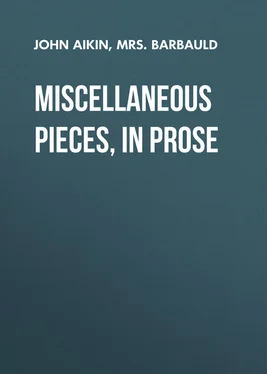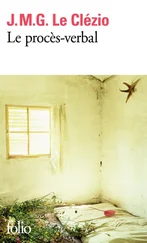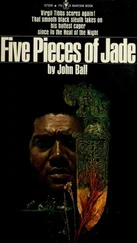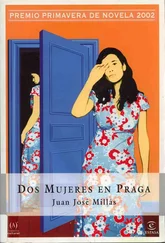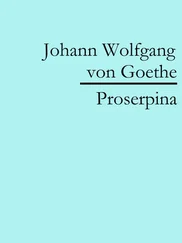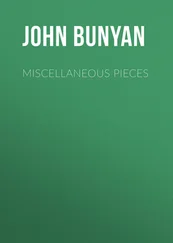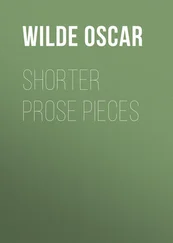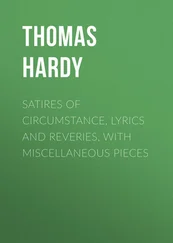John Aikin - Miscellaneous Pieces, in Prose
Здесь есть возможность читать онлайн «John Aikin - Miscellaneous Pieces, in Prose» — ознакомительный отрывок электронной книги совершенно бесплатно, а после прочтения отрывка купить полную версию. В некоторых случаях можно слушать аудио, скачать через торрент в формате fb2 и присутствует краткое содержание. Жанр: foreign_language, foreign_antique, foreign_prose, на английском языке. Описание произведения, (предисловие) а так же отзывы посетителей доступны на портале библиотеки ЛибКат.
- Название:Miscellaneous Pieces, in Prose
- Автор:
- Жанр:
- Год:неизвестен
- ISBN:нет данных
- Рейтинг книги:5 / 5. Голосов: 1
-
Избранное:Добавить в избранное
- Отзывы:
-
Ваша оценка:
- 100
- 1
- 2
- 3
- 4
- 5
Miscellaneous Pieces, in Prose: краткое содержание, описание и аннотация
Предлагаем к чтению аннотацию, описание, краткое содержание или предисловие (зависит от того, что написал сам автор книги «Miscellaneous Pieces, in Prose»). Если вы не нашли необходимую информацию о книге — напишите в комментариях, мы постараемся отыскать её.
Miscellaneous Pieces, in Prose — читать онлайн ознакомительный отрывок
Ниже представлен текст книги, разбитый по страницам. Система сохранения места последней прочитанной страницы, позволяет с удобством читать онлайн бесплатно книгу «Miscellaneous Pieces, in Prose», без необходимости каждый раз заново искать на чём Вы остановились. Поставьте закладку, и сможете в любой момент перейти на страницу, на которой закончили чтение.
Интервал:
Закладка:
I fear, a view of modern manners in other respects will scarcely allow us to flatter ourselves that this change in the theatre chiefly proceeds from improved morality. It may, perhaps, be more justly attributed to a false delicacy of taste, which renders us unable to bear the representation of low life; and to a real deficiency in genius. With respect to the first, genuine Comedy knows no distinction of rank, but can as heartily enjoy a humourous picture in the common walks of life, where indeed the greatest variety is to be found, as in the most cultivated and refined. Some have placed the distinction between Farce and Comedy in the rank from whence the characters are taken; but, I think, very improperly. If there is any real distinction besides the length of the pieces, I should take it from the different source of the humour; which in Farce is mere ludicrous incident, but in Comedy, ridiculous character. This criterion, however, will not at all agree with the titles under which each species has already appeared.
As to the other cause, deficiency of genius, it too plainly appears in many other productions. Cold correctness has laid her repressing hand upon imagination, and damped all her powers. The example of the ancients has been thought to justify the gravity and simplicity of modern Comedy. But, great as they were in many qualities of the mind, in those of wit and humour they were still more defective than even ourselves in the present age. They, who would eagerly catch at a wretched pun, or a meager piece of plot, were certainly with-held from witticism and drollery by want of invention, not justness of taste. I admire, in the pure Latin of Terence, the elegant sentiment, and still more the knowledge of the human heart, with which he abounds; but I would not on that account compare his genius, at least in Comedy, with Moliere and Congreve.
Lenibus atque utinam scriptis adjuncta foret vis
Comica – —
Moral sentiment is the cheapest product of the mind. Novels, and magazines, and even news-papers, are full of it; but wit and humour threaten to leave us with Chesterfield and Sterne.
Still, however, I would hope the state of Comedy is not desperate. The Clandestine Marriage exhibits an example of comic merit, as various and perfect as perhaps any piece in our language. All the sources of ludicrous character have contributed to it. National ridicule appears in Canton, and professional in Sterling. Lord Ogleby is an excellent humourist. Mrs. Heidleberg and her niece, besides a comic pettishness of temper, have plenty of fashionable follies, modified by city vulgarism. Even the lovers of tender sentiment have their share in the entertainment; and I by no means would object to its occasional introduction, when, as it were, offering itself from the circumstances. Then, besides Mr. Foote’s comic theatre, we have several pieces, which, though ranged under the list of Farces, contain true and original Comedy. Of these we may instance the Citizen , Polly Honeycomb , the Upholsterer , the Apprentice , and the Oxonian in Town . It is a mistake to suppose that the matter of Comedy can ever fail. Though general characters may be exhausted, yet the prevailing follies and fashions of the times, with the singularities starting up in particular ranks and orders of men, must constantly supply food for the ridicule of the stage. This is lawful game; and the pursuit of it is well worthy the encouragement of the public, so long as it is unattended with the licentiousness which disgraced the wit of the last age. Let ridicule be sacred to the interests of good sense and virtue; let it never make a good character less respectable, nor a bad one less obnoxious; but let us not resign its use to common-place maxim, and insipid sentiment.
THE HILL OF SCIENCE, A VISION
In that season of the year when the serenity of the sky, the various fruits which cover the ground, the discoloured foliage of the trees, and all the sweet, but fading graces of inspiring autumn, open the mind to benevolence, and dispose it for contemplation; I was wandering in a beautiful and romantic country, till curiosity began to give way to weariness; and I sat me down on the fragment of a rock overgrown with moss, where the rustling of the falling leaves, the dashing of waters, and the hum of the distant city, soothed my mind into the most perfect tranquillity, and sleep insensibly stole upon me, as I was indulging the agreeable reveries which the objects around me naturally inspired.
I immediately found myself in a vast extended plain, in the middle of which arose a mountain higher than I had before any conception of. It was covered with a multitude of people, chiefly youth; many of whom pressed forwards with the liveliest expression of ardour in their countenance, though the way was in many places steep and difficult. I observed, that those who had but just begun to climb the hill, thought themselves not far from the top; but as they proceeded, new hills were continually rising to their view; and the summit of the highest they could before discern, seemed but the foot of another, till the mountain at length appeared to lose itself in the clouds. As I was gazing on these things with astonishment, my good Genius suddenly appeared. ‘The mountain before thee,’ said he, ‘is the hill of science. On the top is the temple of Truth, whose head is above the clouds, and whose face is covered with a veil of pure light. Observe the progress of her votaries; be silent, and attentive.’
I saw that the only regular approach to the mountain was by a gate, called the gate of languages. It was kept by a woman of a pensive and thoughtful appearance, whose lips were continually moving, as though she repeated something to herself. Her name was memory. On entering this first enclosure, I was stunned with a confused murmur of jarring voices, and dissonant sounds; which increased upon me to such a degree, that I was utterly confounded, and could compare the noise to nothing but the confusion of tongues at Babel. The road was also rough and stony, and rendered more difficult by heaps of rubbish, continually tumbled down from the higher parts of the mountain; and by broken ruins of ancient buildings, which the travellers were obliged to climb over at every step; insomuch that many, disgusted with so rough a beginning, turned back, and attempted the mountain no more: while others, having conquered this difficulty, had no spirits to ascend further, and sitting down on some fragment of the rubbish, harangued the multitude below with the greatest marks of importance and self-complacency.
About half way up the hill, I observed on each side the path a thick forest covered with continual fogs, and cut out into labyrinths, cross alleys, and serpentine walks, entangled with thorns and briars. This was called the wood of error : and I heard the voices of many who were lost up and down in it, calling to one another, and endeavouring in vain to extricate themselves. The trees in many places shot their boughs over the path, and a thick mist often rested on it; yet never so much but that it was discernable by the light which beamed from the countenance of Truth.
In the pleasantest part of the mountain were placed the bowers of the Muses, whose office it was to cheer the spirits of the travellers, and encourage their fainting steps with songs from their divine harps. Not far from hence were the fields of fiction , filled with a variety of wild flowers springing up in the greatest luxuriance, of richer scents and brighter colours than I had observed in any other climate. And near them was the dark walk of allegory , so artificially shaded, that the light at noon-day was never stronger than that of a bright moon-shine. This gave it a pleasingly romantic air for those who delighted in contemplation. The paths and alleys were perplexed with intricate windings, and were all terminated with the statue of a Grace, a Virtue, or a Muse.
Читать дальшеИнтервал:
Закладка:
Похожие книги на «Miscellaneous Pieces, in Prose»
Представляем Вашему вниманию похожие книги на «Miscellaneous Pieces, in Prose» списком для выбора. Мы отобрали схожую по названию и смыслу литературу в надежде предоставить читателям больше вариантов отыскать новые, интересные, ещё непрочитанные произведения.
Обсуждение, отзывы о книге «Miscellaneous Pieces, in Prose» и просто собственные мнения читателей. Оставьте ваши комментарии, напишите, что Вы думаете о произведении, его смысле или главных героях. Укажите что конкретно понравилось, а что нет, и почему Вы так считаете.
